( English version at the bottom of the page )
Le Soukhoï Su-7 (code OTAN Fitter A) est un chasseur-bombardier à ailes en flèches conçu par l'URSS pendant les années 1950.
Le Soukhoï Su-7 est issu de la même demande que celle qui a abouti au MiG-21 .
Émise en août 1953, cette demande concernait un avion de chasse supersonique avec soit une aile en flèche soit une aile deltaIl a été construit
les livraisons aux unités opérationnelles commencèrent durant l'été 1959.
Entre temps, l'armée de l'air soviétique avait émis une nouvelle demande pour un avion d'attaque au sol, et Soukhoï avait proposé une version modifiée du Su-7.
Les principaux changements étaient un renforcement de la structure de l'avion et du train d'atterrissage. Un prototype désigné C22-1 fit son premier vol en mars
1959 avec un réacteur AL-7F, et fin avril avec un réacteur AL-7F-1. Après une série d'essais, la production en série fut lancée et les premiers exemplaires
livrés durant l'été 1960. L'avion fut déclaré opérationnel en janvier 1962.
Ces premiers Su-7 avait une autonomie très limité, et Soukhoï travaillait pour résoudre ce problème. Un prototype S22 apparut en 1961, avec des réservoirs de
carburants dans les ailes et des pylônes d'emport modifiés pour permettre d'installer des réservoirs externes. Un peu plus tard, des modifications
supplémentaires furent faites pour emporter plus de carburant dans le fuselage et améliorer l'avionique. Désignée Su-7BM, cette nouvelle version entra en service
en 1963 et fut la première à être exportée (Pologne et Tchécoslovaquie). Elle fut suivie en 1967 par le Su-7BMK destinée à l'export, avec une avionique
Dégradée, dont sept pays se portèrent acquéreurs.
Soukhoï s'attaqua ensuite à l'autre défaut du Su-7 : la longueur importante de piste dont il avait besoin (2 400 mètres pour un décollage à pleine charge).
Un système de soufflage des volets fut testé, mais n'apporta pas d'amélioration suffisante. La solution finalement retenue fut l'ajout d'une fusée à poudre
pour améliorer l'accélération lors du décollage, et l'installation de deux parachutes pour le freinage. En parallèle, des essais furent réalisés avec un
train d'atterrissage équipé d'une sorte de skis, permettant l'utilisation de terrains non préparés. Ceci abouti à la version Su-7BKL, mise en production à partir de 1965.
Le premier vol d'une version biplace destinée à l'entraînement eu lieu le 25 octobre 1965, et la production en série commença dès le mois de mai suivant.
Désignée Su-7U (code OTAN Moujik), cette version fut également déclinée en version d'export.à plus de 1 800 exemplaires utilisés par une dizaine de pays différents.
Je vous conseil pour un maximum de sensation de piloter depuis la vue interne .
L'avion a été construit autour du cockpit " Mbo Mk1 " de mikoyanster ", qui porte trés bien sont nom .
J'ai un peu modifié de poste de pilotage de Mikoyanster pour coller un peu plus au modèle original .
J'espère qu'il ne m'en voudra pas trop . Le pilotage reste pointu , j'espère pouvoir l'améliorer avec votre aide .
L'équilibrage des avions n'est pas mon point fort . Il n'y a pas d'étoile sur les ailes , elles créent des pertubations
en vol et font dériver l'appareil tout seul .
- Réacteur : touche 1 .
- Post Combustion : touche 2 .
- Feux de navigation : touche 3 .
- Feux d'atterrissage : touche 4 .
- Aérofreins : touche 4 + vtol bas .
- Larguage réservoir externe principaux ( fuselage ) : touche 5 .
- Larguage réservoir externe ( aile ) : touche 6 .
- Parachute : touche 7 .
- Volets : touche vtol .
- Trim .
Je remercie les créateurs sans qui cet avion n'aurai pas vu le jour :
Le cockpit " Mbo Mk1 " est une création de "mikoyanster " .
Les verrières de "cGenrichTitov " , catégorie " Mods " .
Smoke Trails by NathanMikeska3 .
Une mention spéciale a "grizzlitn" pour ses conseils , ses essais de vol .
English version .
The Sukhoi Su-7 (NATO Fitter A code) is an arrow-wing fighter-bomber designed by the USSR during the 1950s.
The Su-kh Su-7 came from the same request that led to the MiG-21.
Issued in August 1953, this application concerned a supersonic fighter jet with either a swept wing or a delta wingIt was built
deliveries to operational units began in the summer of 1959.
Meanwhile, the Soviet Air Force had issued a new request for a ground attack aircraft, and Sukhoi had proposed a modified version of the Su-7.
The main changes were a strengthening of the structure of the aircraft and the landing gear. A prototype designated C22-1 made its first flight in March
1959 with an AL-7F reactor, and end of April with an AL-7F-1 reactor. After a series of tests, mass production was launched and the first
delivered in the summer of 1960. The aircraft was declared operational in January 1962.
These early Su-7s had very limited autonomy, and Sukhoi was working to solve this problem. An S22 prototype appeared in 1961, with tanks of
wing fuels and modified pylons to allow the installation of external tanks. A little later, modifications
additional efforts were made to carry more fuel into the fuselage and improve avionics. Designated Su-7BM, this new version came into service
in 1963 and was the first to be exported (Poland and Czechoslovakia). It was followed in 1967 by the Su-7BMK for export, with avionics
Degraded, of which seven countries were buyers.
Sukhoi then attacked the Su-7's other defect: the long runway he needed (2,400 meters for a full load take-off).
A flap blowing system was tested, but did not provide sufficient improvement. The final solution was the addition of a powder rocket
to improve the acceleration during take-off, and the installation of two parachutes for braking. In parallel, tests were carried out with a
landing gear equipped with a kind of skis, allowing the use of unprepared pitches. This resulted in the Su-7BKL version, put into production from 1965.
The first flight of a two-seater version for training took place on October 25, 1965, and mass production began as early as the following May.
Designated Su-7U (Moujik NATO code), this version was also declined in export version to more than 1,800 copies used by a dozen different countries.
I advise you for maximum driving sensation from the internal view.
The plane was built around the cockpit "Mbo Mk1" of Mikoyanster ", which carries very well are name.
I modified Mikoyanster's cockpit slightly to fit the original model.
I hope he does not mind me too much. The steering remains sharp, I hope to improve with your help.
Balancing planes is not my strong point. There are no stars on the wings, they create disturbances
in flight and drift the aircraft alone.
- Reactor: key 1.
- Post Combustion: key 2.
- Navigation lights: key 3.
- Landing lights: key 4.
- Airbrakes: key 4 + low vtol.
- Larguage main external tank (fuselage): key 5.
- External tank width (wing): key 6.
- Parachute: key 7.
- Shutters: vtol button.
- Trim.
I thank the creators without whom this plane will not have emerged:
The cockpit "Mbo Mk1" is a creation of "mikoyanster".
The windows of "cGenrichTitov", category "Mods".
Smoke Trails by NathanMikeska .
A special mention has "grizzlitn" for his advice, his flight tests.
Specifications
General Characteristics
- Predecessor Sukhoi 7 - test version 1
- Created On Windows
- Wingspan 29.1ft (8.9m)
- Length 45.4ft (13.8m)
- Height 14.6ft (4.4m)
- Empty Weight 25,787lbs (11,696kg)
- Loaded Weight 37,962lbs (17,219kg)
Performance
- Power/Weight Ratio 1.716
- Wing Loading 184.0lbs/ft2 (898.5kg/m2)
- Wing Area 206.3ft2 (19.2m2)
- Drag Points 4301
Parts
- Number of Parts 530
- Control Surfaces 7
- Performance Cost 1,747
Required Mods
-
Glass
by GenrichTitov
Version 1.0 (9/15/2017 2:31:00 PM)
View Mod Page -
Smoke Trails
by NathanMikeska
Version 1.0 (9/13/2016 7:40:51 PM)
View Mod Page

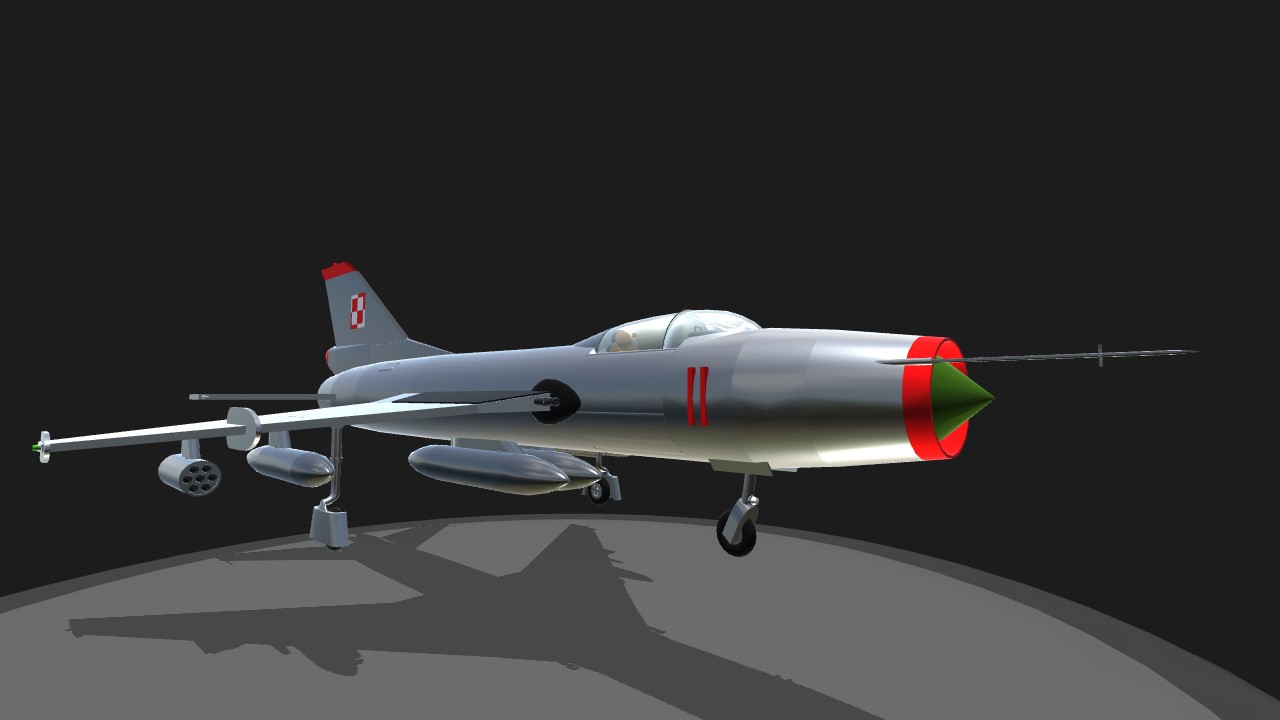
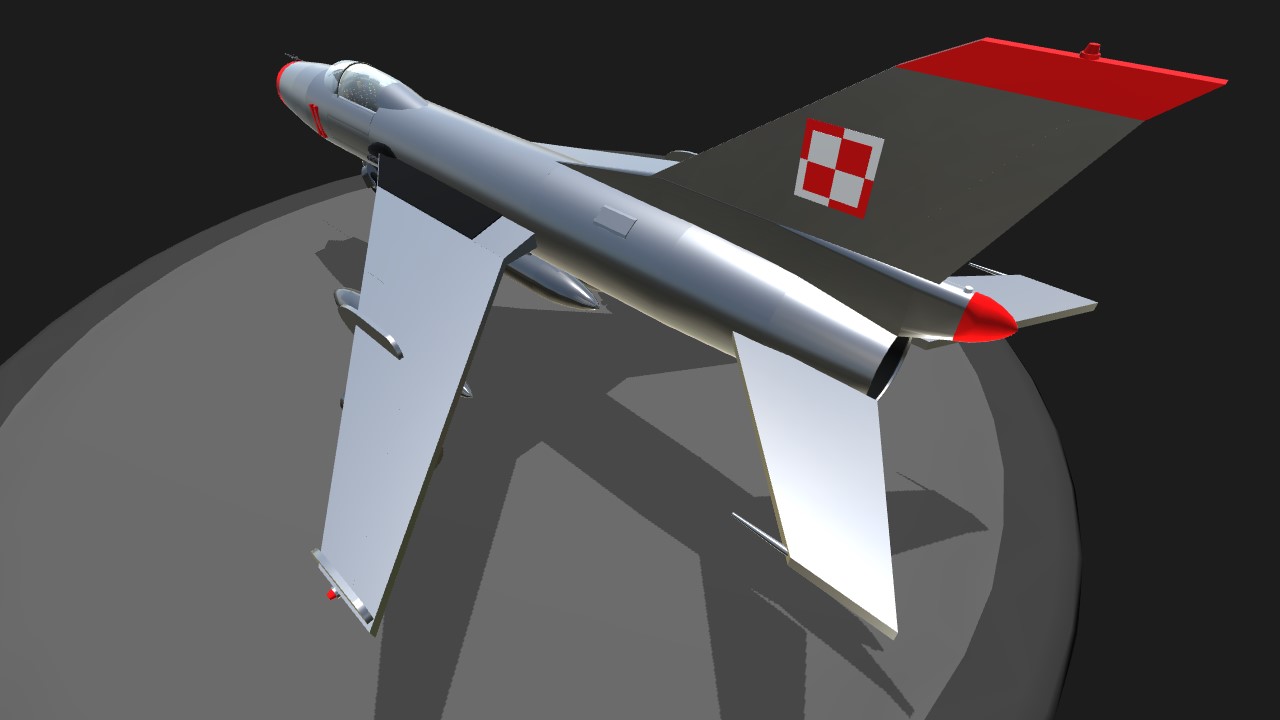
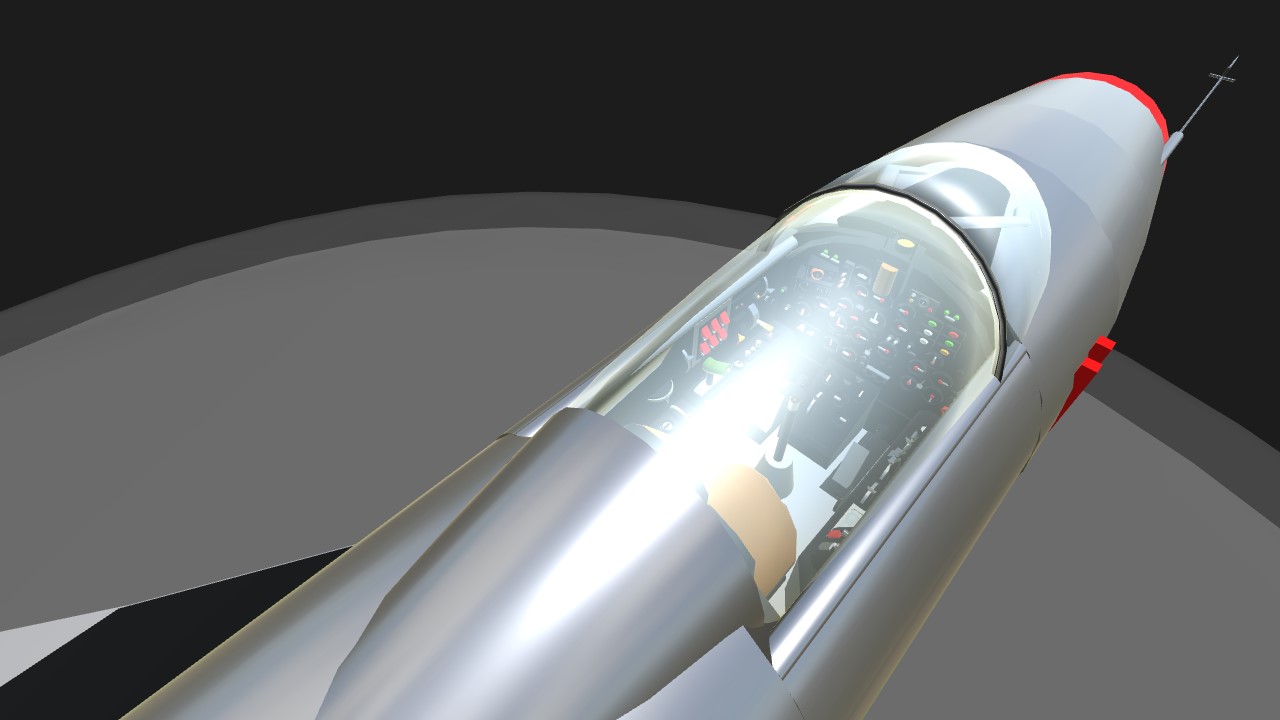
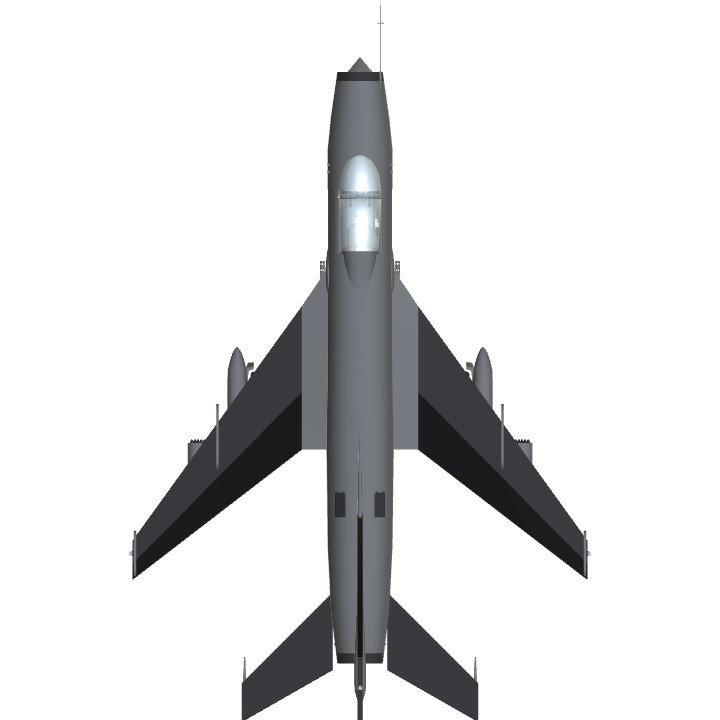
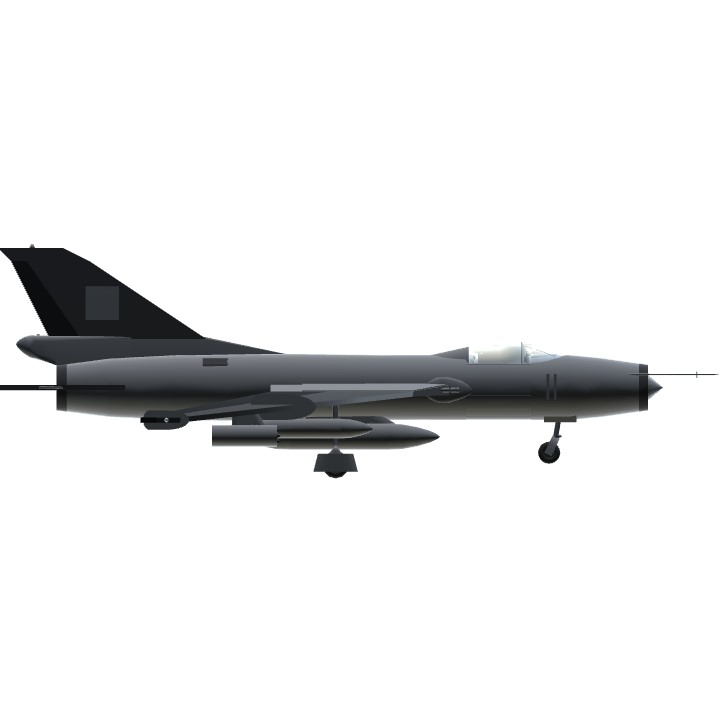
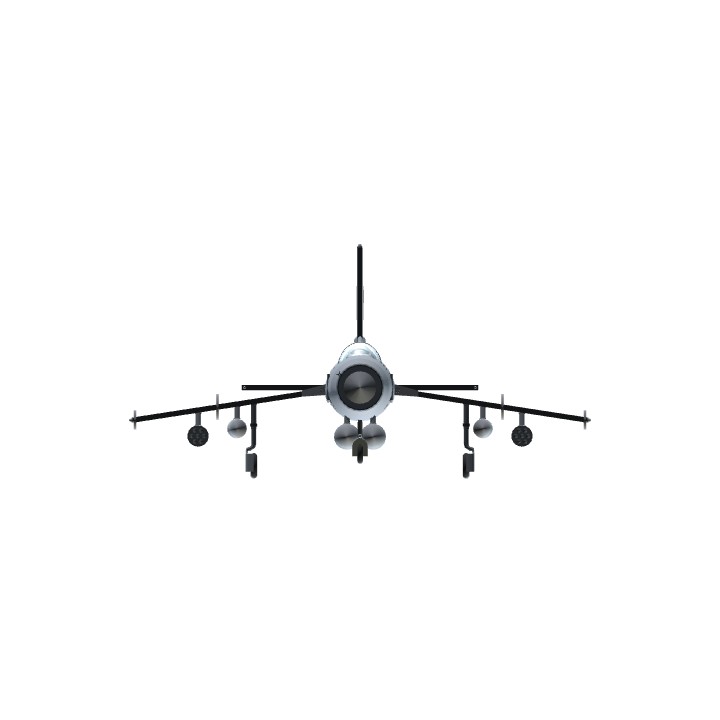
@XEPOH , Thanks for your upvote .
@Tang0five , Thank for you upvote .